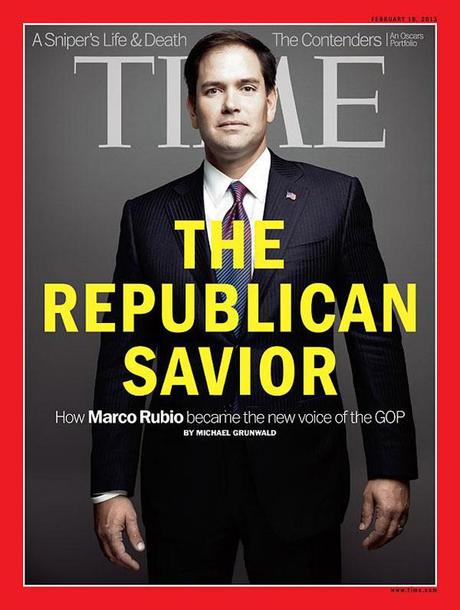
Apparently not
By Alan Bean
The sad story of Marco Rubio explains why we won’t be seeing comprehensive immigration reform anytime soon.
Like Ted Cruz, Rubio is the child of Cuban immigrants who became American citizens without having to stand in line for day, let alone a decade. As refugees from the hated Castro regime, Cubans receive special treatment at the border and it shows in their politics.
The rising prominence of men like Cruz and Rubio is often taken as a sign that the Republican Party is sensitive to the needs and aspiration of the Latino population. But Cubans, as recipients of special favors rooted in Cold War politics, can’t feel the pain of the larger Latino community.
Consider this. In the last presidential election, only 44% of Cuban Americans supported Barack Obama, only 44% supported Obama, compared to 76% of Central Americans, 79% of South Americans, 78% of Mexican Americans, 83% of Puerto Ricans, and fully 96% of Dominican Americans. In other words, the Cuban vote went for Mitt Romney while the rest of the diverse Latino community voted decisively for Barack Obama.
These ugly facts place men like Marco Rubio in a tight place. The man has presidential aspirations and it is increasingly clear that you can’t ascend to the top job without at least the 44% Latino support George W. Bush worked so hard to get. Had Bush received 30% Latino support, he would have been beaten by two relatively weak Democratic challengers.
On the other hand, to win the Republican nomination you have to survive the primary season, and that means appealing to the Tea Party base.
Which explains why Marco Rubio, after helping draft a Senate bill that balanced tough border enforcement with a pathway to citizenship, is now endorsing the go-slow, piecemeal approach to reform favored by House Republicans. Even the deeply flawed Senate bill was too much for Tea Party loyalists because it would eventually mean more Latino voters.
In theory, the Republican Party could take its cue from George W. Bush, winning Latino support by backing sensible immigration reform. It’s just a matter of signalling to Latinos that they are welcome in the country and in the Republican Party.
But the Tea Party can’t go there. A movement built on white racial resentment (the cash value of small government conservatism) doesn’t want more non-white people entering the country.
What part of “illegal” do liberals like George W. Bush not understand?
Marco Rubio knows he can’t change this simple fact of American political life, and has adapted his politics accordingly.
Latinos, per se, are not welcome in a Republican Party controlled by the Tea Party. Rubio had to decide between being Latino and being Cuban, and he made his choice. The Tea Party loves Cubans, but despises Latinos.
This probably means that comprehensive immigration reform will have to wait until the Republicans suffer another defeat in the presidential election of 2016. Latino support for the Democratic candidate, no matter who it is, will be even stronger than it was in 2012. When a political party signals its’ contempt for a large portion of the electorate it must live with the consequences.
If your ambition is to hang on to a Senate seat in the American South, opposing immigration reform makes sense. If the goal is the win the White House it’s quite another matter. The Republicans have effectively opted to be a regional party dedicated to the care and feeding of the White electorate. That’s a winning combination in places like Texas, Louisiana, Alabama and Mississippi, but for the party of Lincoln, it is a long-term disaster in the making.
